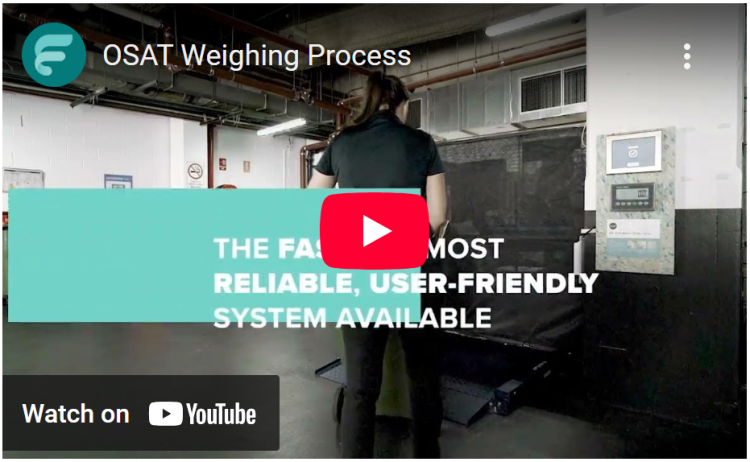15 June 2018
The Supreme Court has recently decided that where a Prohibition Notice is served and subsequently found to be unfounded, the Notice can be rescinded or modified but the issuing inspector should not be sanctioned.
Fundamentally, this is on the grounds that any H&S inspector might reasonably act in an 'emergency' situation without the benefit of subsequent testing.
The case revolves around the HM Inspector of Health and Safety (Appellant) v Chevron North Sea Limited.
The Respondent operates an offshore installation in the North Sea. In April 2013, the installation was inspected by Her Majesty’s Inspectors of Health and Safety. The inspectors formed the view corrosion had rendered the stairways and stagings to the helideck unsafe and served a prohibition notice on the Respondent (under section 22 of the Health and Safety at Work Act 1974).
Appeal
In May 2013, the Respondent appealed against the prohibition notice to an employment tribunal (under section 24 of the 1974 Act).
In July 2013, the Respondent arranged for the metalwork which had been of concern to the inspector to be removed from the installation and tested. The results of the testing showed that all the metalwork passed the British Standard strength test with the exception of a panel
which had been damaged during the inspection and could not be tested reliably.
There was no risk of personnel being injured by falling through it.
Chevron won the tribunal and the inspectors appealed.
The Supreme Court unanimously dismissed the appeal on the basis the tribunal is entitled to take into account all the available evidence relevant to the state of affairs at the time of the service of the prohibition notice, including
information coming to light after it was served.
However, the Judges in the case also recognised it is vital for inspectors to be able to take prompt and effective action. The decision included the wording 'a prohibition notice is a powerful tool in the inspector’s hands. It not only allows an inspector to step in when he (sic) is of the opinion that a particular activity will involve a risk of serious personal injury, it also encourages employers to have good systems in place to improve safety'.
The decision continued, 'however, the service of a prohibition notice on a business has the potential to do financial and reputational harm to it. An appeal against an inspector’s notice is not against the inspector’s opinion but against the notice itself'.
'It is no criticism of the inspector when new material leads to a different conclusion about risk from the one he reached. His decision is often taken as a matter of urgency and without the luxury of comprehensive information.
'The effectiveness of a notice is in no way reduced by an appeal process which enables the realities of the situation to be examined by a tribunal with the benefit of additional information.
'This wider interpretation of section 24 does not undermine the role of prohibition and improvement notices in encouraging employers to have robust systems in place to demonstrate easily that no risk exists and therefore avoid the disruption of a prohibition notice which remains in force during the appeal process unless suspended by the tribunal.
'The appellant’s arguments, that permitting the tribunal to look beyond the material available to the
inspector will create delay and cost, do not change the conclusion on the wider interpretation of section 24'.
More
'There are potent considerations in favour of the wider interpretation of section 24. The only means by which a notice can be cancelled under the statutory scheme is an appeal. However, if the appellant’s interpretation were correct a notice could not be dislodged even if the perceived risk of injury never in fact existed. In some cases, an employer might have to carry out unnecessary works.
'Further, even if, upon receipt of convincing evidence there was no risk the inspector would not seek to enforce the notice, the notice would still have the capacity to damage the reputation of the employer and his ability to do business. Furthermore, it cannot be right in those circumstances that an employer should be exposed to the possibility of criminal proceedings after his appeal is concluded'.
Picture: For illustration only - Chevron North Sea facility but not necessarily the one served a prohibition notice.
Article written by Brian Shillibeer | Published 15 June 2018
Share
Related Articles
Power to The People - Citizen Smith Makes A Charlie Out Of Charlie
Plumber Gary Smith has won his case against Charlie Mullins and Pimlico Plumbers - a huge ruling on the employment status of individual contractors who might otherwise...
Read Full Article
Dursley Does It - Fine For School Unlicensed Asbestos Removal
A company has been fined following an unlicensed asbestos removal from a school. The unsafe and unlicensed removal occurred during refurbishment works at Dursley...
Read Full Article
Vehicle Crushes Pedestrian & Other Cases
A worker has been sentenced after seriously injuring pedestrian - we have the disturbing CCTV footage of the incident plus news of another six...
Read Full Article
Up, Up And Away - Drones Drafted In For Building Inspections
The Sky has become the limit as a new partnership looks to take inspection strategy to, quite literally, a whole new level.
Against the backdrop of an...
Read Full Article
Airline Company Guilty For Unsafe Operation of Passenger Lift
Flybe, the airline company, was sentenced on 4 February 2020 for the unsafe operation of a passenger lift. Meanwhile, a number of other firms have found themselves...
Read Full Article
Newnham College Cambridge Lands Asbestos Failings Fine
Newnham College Cambridge has been fined for failings that exposed employees and subcontractors to asbestos during refurbishment of a flat owned by the...
Read Full Article
Support Service Company Fined For Brain Injury Fall
A company providing a range of airline ground support services has been fined after an employee fell from a height of more than two metres - suffering fractures and a...
Read Full Article
School Gets Hard Knock With Fire Conviction
A prestigious Wakefield school and former fire risk assessor have been fined after admitting fire safety offences across educational premises.
The conviction was first...
Read Full Article
Chemical Co Convicted At Christmas
Just before Christmas, a chemical company (LMA Services Ltd) was sentenced for breaches that led to a fire. Meanwhile, a fall from height has cost Sir Robert McAlpine...
Read Full Article
Places For People Places People In Danger
A property management and development organisation has been fined after a number of employees developed Hand Arm Vibration Syndrome.
Aylesbury Crown Court heard that...
Read Full Article

.gif)

.gif)
.gif)




.png)



.png)




